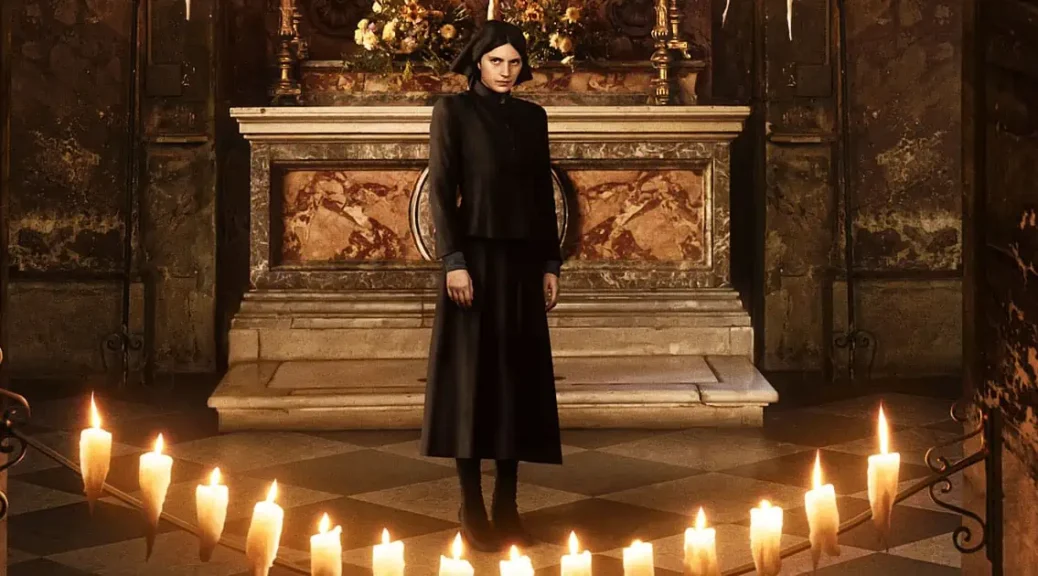The First Omen
by Hope Madden
Just two short weeks ago, producer/star Sydney Sweeney’s Immaculate turned the threadbare “innocent nun bringing about the apocalypse” horror (it’s actually an incredibly common trope) into a potent and startling instrument of female rage.
Thanks, by the way.
But if all that remarkable sacrilege was a little too much for you, if you were looking for the exact same movie—just maybe not so hard on the patriarchy—can I interest you in The First Omen?
Arkasha Stevenson’s hands were a bit tied, of course, this being a direct prequel to Richard Donner’s 1976 classic. Donner’s film has already spawned three sequels and a remake, and now a reboot.
A lot has happened since 1976 that makes a “trust the priest” narrative tough to swallow. Stevenson, working from a script she co-wrote with Tim Smith and Keith Thomas, digs into the sketchy side of Catholicism hinted at back in ’76. You know, the burned convent. The shady hospital baby switch. The jackal.
And yet, for all the Omen specificity Stevenson sews into her antichrist apocalypse tapestry, the movie still feels for all the world like a neutered Immaculate.
Margaret (Nell Tiger Free) is an American who grew up in Catholic orphanages and has come to an Italian convent to take her vows and become a nun. There’s a hospital wing at the convent. Margaret quickly decides things are unseemly but she’s powerless.
Why yes, that is the exact set up as Immaculate. There’s also a saucy best friend nun who doesn’t seem cut out for the veil, and of course, the involuntary vessel of the antichrist.
How do the films differentiate themselves? Well, Immaculate is not part of a decades-old franchise. The First Omen has a pretty great club scene. Other than that, they are essentially the same film. One just hits a lot harder.
Back in 2022, Daniel Stamm’s Prey for the Devil tried to breathe a little feminism into convent horror. It wasn’t a great movie, but it was a nice try. Just two years later, a little feminism feels like a pulled punch.



